木村元彦『悪者見参 ユーゴスラビアサッカー戦記』あらすじと感想~報道によって絶対的な悪者は作られる。NATO空爆の是非を問う衝撃作
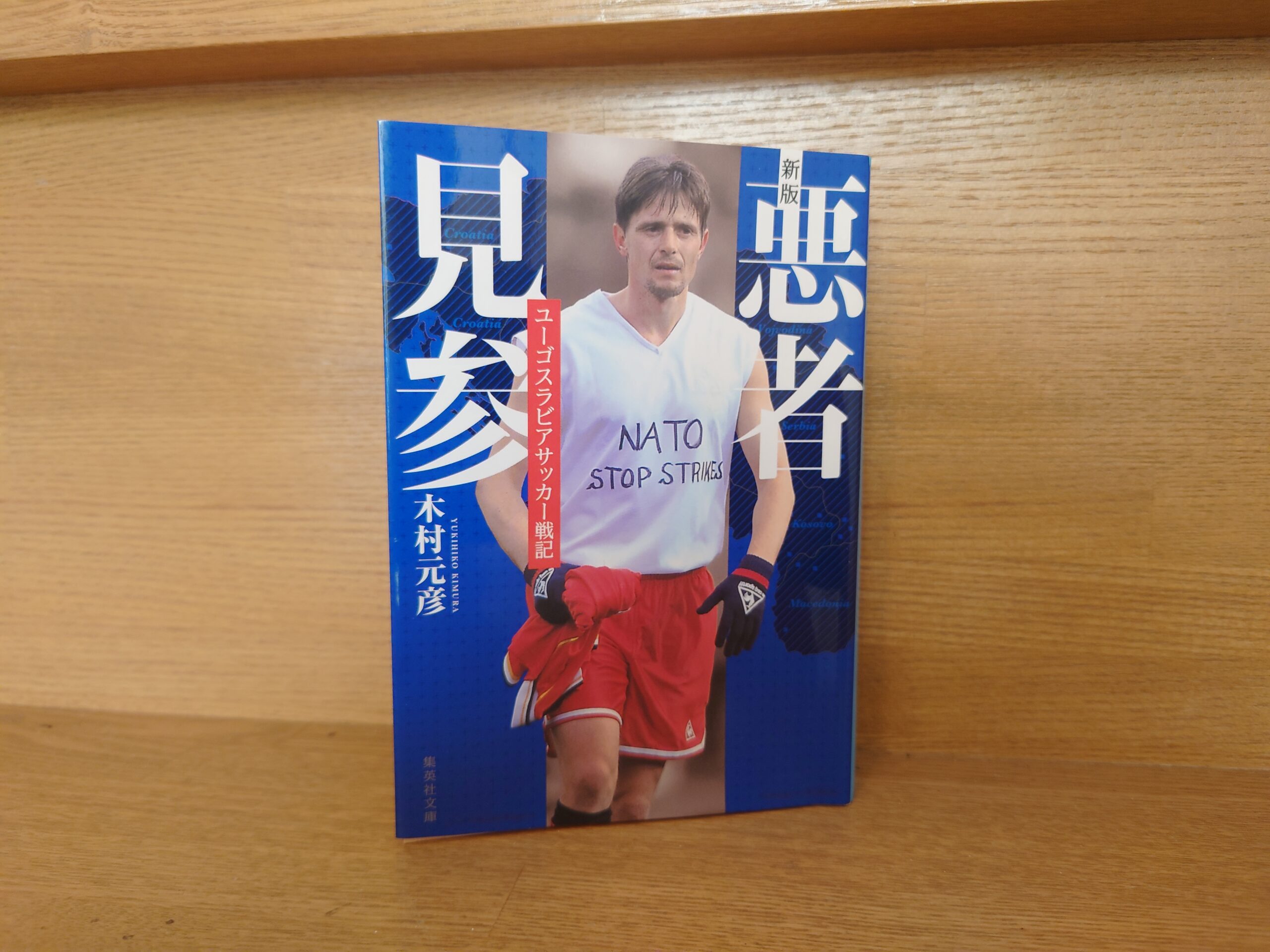
木村元彦『悪者見参 ユーゴスラビアサッカー戦記』概要と感想~報道によって絶対的な悪者は作られる。NATOのユーゴ空爆の是非を問う衝撃作
今回ご紹介するのは2018年に集英社より発行された木村元彦著『新版 悪者見参 ユーゴスラビアサッカー戦記』です。
この作品は木村元彦氏のユーゴサッカー三部作(『誇り』、『悪者見参』、『オシムの言葉』の第二作目に当たります。

早速この本について見ていきましょう。
──2018年新版── 高野秀行氏絶賛!!
「木村元彦氏のユーゴ・サッカー三部作は衝撃的だ。中でも『悪者見参』には驚嘆した」
クロアチアの準優勝が世界を驚かせた2018年サッカーW杯ロシア大会。スイス対セルビア戦でコソボ移民の二人が見せた「鷲のポーズ」。さかのぼること20年、1999年のNATOによるユーゴ空爆にその端緒を探ることができる。当時、著者が身の危険を顧みず「世界の悪者」とされた旧ユーゴ紛争地を歩き、直に触れたすべてを綴った貴重な記録。執筆当時から現在までの空白を繫ぐ追章を加えた新版。
Amazon商品紹介ページより
先に言わせて頂きます。この本は凄まじいです。とにかく読んでほしいです。それも今すぐ!できるだけ早く!
ロシア・ウクライナ戦争に揺れている今だからこそ大切な一冊です。
著者はあとがきでこの本について次のように述べています。
セルビア人のことをずっと書きたかった。それゆえにユーゴに3年通った。
ユーゴスラビア連邦崩壊が始まって以来、この民族に対して国際社会が与えた仕打ちの不公平さはまさに筆舌につくしがたい。国際法廷で、メディアの世界で。検証すればするほど覆い隠されて来た意図的なセルビア叩きの歪んだ事実がいくつも見えてくる。世論はセルビア人だけを鬼か悪魔のように言い募り、もろもろの国際機関は言うに及ばず、日本の平和運動の中ですら、紛争に疲弊したこの民族に対する差別発言はよく見受けられた。忘れられない取材がある。最初の空爆危機の日(第2章)。政府による暗い情報統制が進む中、独立系メディアのメンバーがANEM(自由メディア連盟)を作った。世界で孤立しようとも民衆自らが平和解決を模索してゆこうという集会をユーモアを混じえながら開いていた。皆、泣きながら笑っていた。
本文にも書いたが、絶対的な悪者は生まれない。絶対的な悪者は作られるのだ。ベオグラードへ行く度に心底感じたのは経済制裁の恐ろしさだった。薬が手に入らぬばかりに助かるはずの命を落としていった罪のない乳児や子供が何人いることか。浦和レッズのペトロビッチがスイスで嘆いていたように、彼らにとって国連は間接的に命を奪う伏魔殿でしかない。そして、今回はその国連すら迂回して始められたアメリカ主導のNATOによる空爆。
現在コソボでは、べトナム戦争時のダナン基地に匹敵する巨大な米軍基地が建設されている。UNMIK(国連コソボ暫定統治機構)に派遣されて現地に赴いた国連職員の水野時朗さんは、2000年1月15日付の東京新聞のインタビューで、「米国がコソボになぜ執着するのか理解に苦しんだが、米軍基地の建設が進むのを知り、シナリオが読めた気がした。独自の軍事力による世界制覇の戦略構築がコソボ空爆の狙いだったのでは」と述べている(付け加えるならこの翌日には米兵が12歳のアルバニア人少女を強姦し、殺害するという事件が起こっている)
集英社、木村元彦『新版 悪者見参 ユーゴスラビアサッカー戦記』P428-429
アメリカの広告代理店によるメディア宣伝がボスニア紛争に非常に強い影響を与えていたことはよく知られていますが、セルビアはその後その影響をずっと引きずることになります。ボスニア紛争でセルビア側が悪玉と断罪されていく過程について書かれた作品が以下の『戦争広告代理店』です。
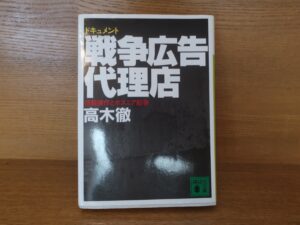
今回紹介している『悪者見参』はそのボスニア紛争の後、1990年代末から2000年代のコソボ紛争におけるセルビアについて書かれた作品になります。
著者によればこの紛争においてもボスニア紛争と同じく一方的な報道がなされ、そのまま非人道的な空爆を受けることになってしまったと述べています。
この本で語られることはあまりに衝撃的です。引用したいところが山ほどあるのですが分量の制限もありますので今回の記事ではこの本の中でも特に印象に残った箇所を紹介していきます。
「サッカー文化」とは生き方の投影でもある
「サッカー文化」という言葉がある。
文化として根付く前にビジネスに絡めとられたのがJリーグなら、バルカンのそれはもっと深い業のようなモノではないか。それはプラーヴィ(※ユーゴ代表 ブログ筆者注)とその背景を追った6月の旅で得た確信めいた私の実感だった。
旧ユーゴ。すでにちりぢりに分かれてしまったあの国々で、かつて人々は己れがどの民族であるかを確認する、あるいは露呈させる手段として、サポートするクラブを選択していたという。
ザグレブに住んでいるからディナモではなく、クロアチア人だからディナモ、べオに住んでいるからでなく、セルビア人だからズべズダ(レッドスター)を応援するのだ。
さらに言えば、民族のみならずそこには主義主張まで色濃く反映されている。
例えば、パルチザン・べオグラードはユーゴ人民軍のクラブであったために、多民族社会主義的な意見を持つ人間が多くサポートしている。グロバリ(グローバル=全体的な)という応援団名はそこから来ている。選手にもアルバニア人やモンテネグロ人が多い。今では信じられないが、ツジマン(クロアチア)大統領は人民軍の将軍だった時代にその職務ゆえにセルビアのこのクラブの永久名誉会長を務めている。対照的にズべズダを応援する者たちは、デリエ(勇者)とスタジアムにその呼称をキリル文字で刻んで誇ることからもわかるように、より自由主義、民族尊重の気風を好む。
たかがサッカークラブ、ではない。
生活に密着している、どころではない。
すなわち生き方の投影なのだ。だからこそ、すでに何やらブスブスと燻り出しているユーゴの諸地域の変化や営みを、サッカーボールに繋がるその細い糸を手繰って感じてみようと考えた。
集英社、木村元彦『新版 悪者見参 ユーゴスラビアサッカー戦記』P91-92
サッカーとその土地その土地の歴史と文化と繋がっている。
特にヨーロッパでその傾向が顕著なことが上の引用からもはっきりと伝わってきますよね。だからこそヨーロッパであれほど重要視されているのだということがよくわかりました。
代理戦争としてのサッカー
日本では欧州コンプレックス丸出しのサッカー評論家がよく言う。
「Jリーグは厳しさが足りない。ヨーロッパでは試合に負けると、どんなスター選手も怖くて表を歩けないのです。サポーターが敗戦や二部落ちを暖かく迎えるなどという態度が、日本サッカーの強化を遅らせているのです」
欧州のサポーターの過激さを何の猜疑心もなく持ち上げる発想の何と貧困なことか。
社会的に抑圧されてきた若者たちの捌け口として存在するフットボールが確かにある。しかし、それは果たして幸福なことだろうか。
サッカー『文化』という言葉をロにするのなら、例えば敗者への礼をも重んずる日本人固有のメンタリティーに合った応援があってもおかしくはない。そもそも選手にからむようなやさぐれたニイちゃんを持ち上げてどうする。
旧ユーゴでは自民族の意識発揚のための代理戦争としてのフットボールがあった。
それは『文化』というよりも民族問題と密接に絡んだ業のようなものだ。「全民衆防衛制度」のおかげで、すべての青年男子が武器の扱いを知っている。だからサポーターが民兵になることは何の造作もないことだ。造作もなく民兵になるということは、造作なく死んでゆくということだ。バイス(※サポーター ブログ筆者注)たちが暴れる背景には彼らしかわからぬ哀しさが綿々と流れている。
集英社、木村元彦『新版 悪者見参 ユーゴスラビアサッカー戦記』P143-144
この箇所は現地を取材した著者だからこその重要な指摘であると思います。私もこの箇所を読んで「あぁ・・・!」と思わず呻いてしまいました。
セルビア空爆の開始~欧米の「セルビア悪玉」報道の過熱
1999年3月2日。
その夜、私は新宿2丁目にいた。
NATO軍はすでにユーゴスラビア全土に対する空爆を決定していた。
私は全く信じられぬ思いだった。
ラチャク村で目のあたりにした「虐殺」疑惑事件から2カ月余り。コソボ和平をめぐるパリ・ランブイエでのユーゴ政府とアルバニア系住民との和平交渉が決裂するまで、あっと言う間だった。果たして、こうも簡単に絶対的な武力制裁が決定されて良いものなのか。いまだに信じられなかった。
空爆開始においてクリントン大統領は、「コソボの罪なき人々を殺人鬼ミロシェビッチの手から守るため、われわれが躊躇することは許されない。(空爆は)悲劇を終わらせるための道義的義務だ」と演説していた。(中略)
私は99年Jリーグ開幕戦終了後、瑞穂競技場のミックスルームでストイコビッチ夫人のスネジャナに呼び止められた。
「どうしてあなたはアルバニア側の報道ばかりするのですか」
私が映像リポートしたNHKのコソボの番組のことを言っていた。当然ラチャク村の映像を使った。完全に疑惑の消えぬ事件のコメントに対する彼女の怒りはもっともだった。何よりプラーヴィ(※ユーゴ代表のこと ブログ筆者注)取材では散々世話になっていた彼女の言葉だけに堪えた。
しかし、ストイコビッチ可愛さでセルビア寄りの報道をすることは、意地でもしたくなかった。セルビア政府にすれば、少数者である自民族保護のための政策でも、受ける側にとっては紛れもない「弾圧」である。実際に苦しみに喘いでいる人間が確かにいた。「個」に関して言えばそれはチェチェンや東ティモールに比べれば、などという相対化出来るものでは決してない。その人間の人生はその人にとってのすべてであるはずだ。
そしてもうひとつ、ユーゴ・サッカーを愛する者としての確信があった。すなわち「政治とスポーツは別」であると信じる者の意地でもあった。
ピクシー取材拒否も覚悟しながら、コソボで行なわれている事実は事実として取材して来たままを署名で書き、顔出しで喋った。
だからこそ、クリントンの言うあたかもコソボで日常的に虐殺が横行しているかのようなミエミエの喧伝には吐き気すら覚えた。戦闘地域は別として、慌ただしくも、落ち着きがなくも、しかし、セルビア人もアルバニア人も住み分けがされて淡々と生活を営む町並みが目に浮かんだ。
コソボでは双方の民族から、出所のよくわからぬ虐殺遺体の写真を、それこそ嘔吐するまで見せつけられたが、都市部における一方的な「虐殺」事件など、疑惑のラチャク村以外では見たことも聞いたこともなかった。当のアルバニア人、コソボ代表監督ソコリが言っていた言葉を思い出す。
「われわれがひどい目に遭ってるからって、空爆なんてのはナンセンスだ。バルカンの問題は住んでない人間にはわからんよ」
ー発でも爆弾が落ちれば、セルビア人たちの反アルバニア感情に火がつくのは明白だった。
集英社、木村元彦『新版 悪者見参 ユーゴスラビアサッカー戦記』P196ー198
アメリカ大統領が相手国のトップを「殺人鬼」と呼び、「我々は正義であり攻撃は道義的義務がある」と断言してこの空爆は始まったのでした。
そして著者の取材スタンスも上の箇所からうかがえます。この本は決してセルビア側をひいきする立場から書かれたものではありません。その点は特に強調したいと思います。
実際、空爆開始後の欧米メディアの報道では、空爆を正当化するための『セルビア悪玉論』が跋扈し、呆れ返るようなプロパガンダがいくつもなされていた。そもそもこの空爆は「コソボ和平合意文書をユーゴスラビアが拒んだため」に行なわれたものだが、あたかも「今まさに起きているアルバニア系住民虐殺からの保護のため」に執行しているかのように、巧みに世論誘導がされていった。情報操作によるすり替えは見事に成功しているようだった。
歪曲された報道は、私が直接体験した限りの確認でもかなりの数に上った。
代表的なものが、「ランブイエでの和平交渉に参加したアルバニア人指導者たちがセルビア兵に全員銃殺された」との報道。
私の知る限りセルビア人官憲たちのコソボにおける対応は表向き尊大である反面、「腫れ物」に触るかのように慎重であり、むしろ一旦虚勢が剥がれると臆病な印象すら受けるものだった。すぐさま処刑など出来るものではないだろうと不審に思っていた。案の定、指導者たちは数日後、コソボ、マケドニア、アルバニアにそれぞれ姿を現わした。
そしてこの1年、ユーゴ・サッカーを追いまくった私を最も呆れさせたのが次の報道だった。〝プリシュティナのサッカースタジアムに10万人のアルバニア系住民を監禁、レイプするための強制収容所が作られた〟。あの8000人も収容できれば御の字のFKプリシュティナのスタジアムを、一体どう作り変えることが出来るのか。第一スタジアムにはアルバニア人(決して少数ではないコソボの独立を望まないアルバニア人)のスタッフも働いているのだ。
慌てて取材に行った特派員がいたらしいが、そこにいたのは驚いた顔の警備員だけだったという。折しもロンドンでBBC女性キャスターが殺害される事件が発生。すぐさま「イギリス在住のセルビア人の仕業」との憶測ニュースが一方的に流された。これなども意図的なものを(事実違っていたわけだが)感ぜずにはいられなかった。
日本のメディアの報道も決して例外ではなかった。
「『ユーゴ空爆』これは米露の代理戦争です」、とユーゴ市民の悲劇を東西問題に変換してしまう見解を発表したある軍事評論家がいた。また某放送局には「現在、コソボではセルビア兵によってアルバニア人が人間の楯とされているのです」、とスタジオからしたり顔でNATO発表をそのまま垂れ流す国際部記者がいた。軍の発表である以上、当然意識的に操作が働いているとも考えずにそのままだ。
裏を取らずともこれらの見出しや発言は、日々発表されてゆく。空爆を正当化せんがための「悪者」イメージは傍目から見ていても、徐々に確実に情報の受け手に刷り込まれていった。歯痒いばかりだった。
絶対的な悪者は生まれない。絶対的な悪者は作られるのだ。
集英社、木村元彦『新版 悪者見参 ユーゴスラビアサッカー戦記』P215-217
「絶対的な悪者は生まれない。絶対的な悪者は作られるのだ。」
この言葉は本書において最も重要なもののひとつです。
「日本のメディアの報道も決して例外ではなかった。
「『ユーゴ空爆』これは米露の代理戦争です」、とユーゴ市民の悲劇を東西問題に変換してしまう見解を発表したある軍事評論家がいた。また某放送局には「現在、コソボではセルビア兵によってアルバニア人が人間の楯とされているのです」、とスタジオからしたり顔でNATO発表をそのまま垂れ流す国際部記者がいた。軍の発表である以上、当然意識的に操作が働いているとも考えずにそのままだ。
裏を取らずともこれらの見出しや発言は、日々発表されてゆく。空爆を正当化せんがための「悪者」イメージは傍目から見ていても、徐々に確実に情報の受け手に刷り込まれていった。歯痒いばかりだった。」
今のウクライナ情勢においても、テレビのコメンテーターは様々な発言をしています。テレビの出演者すべてが悪いとはもちろん言う気はありません。ですがテレビに引っ張りだこのコメンテーター達が語る欺瞞。これらに対しては、情報の受け取り手である私たち自身が注意してかからないといけないとつくづく感じました。
セルビアに撃ち込まれた劣化ウラン弾
劣化ウラン弾。原発から出た濃縮ウランの廃棄物で作られた国連で使用を禁止されている兵器だ。NATOはこの非人道的武器を約100万発ユーゴスラビアで使用したと言われている。
この撮影期間中に記していた私の日記から、少しばかり抜粋したいと思う。1999年の8月に、ユーゴスラビアとコソボはどんな情況であったのかを知っていただきたい。(中略)
8月25日。KFOR(コソボ平和維持部隊)の広報官に会う。NATOの劣化ウラン弾については「使用は知っているが、われわれは特に関知しない」。土壌に溶けこみ、農作物経由でロに入れば人体にきわめて危険なものだ。アルバニア人の人権保護を大義にしたのなら、なぜ撤収作業をしないのか。ここにも空爆の矛盾がある。しかしアルバニア人たちは「米軍を悪く言うな」と耳をふさぐのみ。(中略)
8月28日。べオ郊外のビンチェ放射能研究所でセルビア南部ブヤノバツからユーゴ軍が回収してきた劣化ウラン弾の実物を物撮り。たった1本なのに何と放射能数値は年間7マイクロシーべルトを記録。自然界の100倍の量だ。これが大量にコソボに撒かれているのだ。本来であれば即座に回収しなくては危険だが、KFORは無関心。唯一その作業の可能性のあったユーゴ軍は、もうあの土地から撤退させられてしまった。放射能野放し状態だ。うかつだったが、われわれもその廃棄物置場での取材で全身に放射能を浴びてしまった。
かつて原発から出た放射能核廃棄物はカネを払って捨てていたものだった。それが現在は兵器転用することで軍需産業の利益機会につながる。そして正義の名のもとに他国に撃つ。つまり無料で捨てられる。湾岸戦争のイラクに続いて大量に核を捨てられた国。それがユーゴスラビアだった。この日、ディナールが闇レートでまた下がった。ユーゴをハイパー・インフレが襲っている。皆、狂ったようにマルクを買い始めた。すでにKFOR特需で潤うコソボの方が数倍も豊かだ。
8月31日。破壊されたパンチェボの化学コンビナートへ行く。バルカン最大規模だった同工場は、化学物質を大量に流出させる巨大環境汚染の源と変わり果てていた。アンモニア、水銀、ダイオキシン……。きつい異臭が鼻をついた。同行した藤田祐幸慶應義塾大学助教授は、その廃墟を歩きながら、「死者2500人を出したインド・ボパールの有毒ガス事故に匹敵する世界最大規模の環境破壊だ」と指摘した。だが国連環境調査団はろくに調査せずに帰ったという。
集英社、木村元彦『新版 悪者見参 ユーゴスラビアサッカー戦記』P274-276
この箇所こそ、私がこの本の中で最も衝撃を受けた事実でした。
核廃棄物を使って作られたという劣化ウラン弾。それを大量に撃ち込んだのがNATOによるセルビア空爆だった・・・
世界の平和を守る正義の軍と宣伝されていたNATO軍の攻撃の実態がこれだったのです。
これには呆然としてしまいました・・・
私は本当に何も知らないんだとつくづく情けなくなりました・・・
著者はこの後で次のように語ります。
空爆停止後、コソボをテーマにしたテレビ番組が多々作られた。そのほとんどがセルビア民兵による虐殺を伝えていた。それはいい、現場で私もいくつか当事者からの事実を掴んでいた。しかし、私がきわめて不満であったのはそれらが「空爆開始後」に始まったという事実に一切触れていないのだ。結果、虐殺を止めるために空爆やむなしだったという結論にいたってしまう。私に言わせれば「第二のベトナム戦争」とも言えるあの不当なユーゴ空爆が、ろくな検証もされずに見逃されていくことにやるせない思いがあった。実際、ベオグラードではトーマ・フィラという弁護士が国際法廷にNATOの戦争犯罪を訴えていた。マケドニア生まれのギリシア人である彼は決して民族主義的観点からの提訴でなく、非人道的兵器の使用と明らかな国際法違反の観点から義憤に駆られていた。
集英社、木村元彦『新版 悪者見参 ユーゴスラビアサッカー戦記』P312-313
ここで著者が述べているように、ユーゴ空爆がろくな検証もされずに見逃されているというのが大きな問題であると私も思います。
私もこの本を読むまでユーゴ空爆のことをほとんど知りませんでした。
ですが、ロシア・ウクライナ戦争をきっかけに様々な紛争を改めて学んだことで思ったことがありました。
それは、「なぜロシアがそこまでNATOを恐れているのか」ということです。
この空爆は国連を介さずにアメリカ主導で行われました。つまり、ロシアの意向を無視しての攻撃だったわけです。しかも劣化ウラン弾という非人道的兵器を大量に撃ち込み、街を廃墟にしました。その結果戦闘員、非戦闘員関わらず膨大な犠牲者が出ています。しかも徹底的にインフラが破壊されたことで復興も進みません。経済制裁のダメージも延々と続きます。
これが正義の名で行われたという事実。
そして、未だに「セルビア=悪」というレッテルで片づけられ、その紛争の実態はほとんど顧みられることはありません。
ただ、この空爆の前にソマリアのブラックホークダウン事件や、ルワンダ内戦、ボスニア紛争で国連軍が武力介入を避け、その結果紛争の被害が大きくなってしまったという苦い経験があったのも事実です。武力介入をしないことに対する不満も国際社会にあったということも見過ごすことはできません。
ですが、いずれにせよ、劣化ウラン弾による徹底的な破壊にはたして正当性があったのかというのは非常に重要な問題であると思います。NATO軍は国連を介さずともこうした徹底的な攻撃を行いうるという恐怖がロシアにあったとしてもおかしくはありません。(ただ、ロシアが自分たちの行動をそれを理由に正当化している側面ももちろんあると思います)
この本ではそんな複雑なユーゴ事情を知れる衝撃的な作品となっています。これだけ悲惨な状況の中サッカーを通して戦い続けたストイコビッチ氏には驚くしかありません。
ストイコビッチ氏のサッカーと絡めて語られるこの作品は本当に素晴らしいです。ぜひぜひおすすめしたい名著です!「ユーゴサッカー三部作」の中でもピカイチの作品です!ぜひ手に取って頂けたらなと思います。
以上、「木村元彦『悪者見参 ユーゴスラビアサッカー戦記』報道によって絶対的な悪者は作られる。NATO空爆の是非を問う衝撃作」でした。
Amazon商品ページはこちら↓
次の記事はこちら

前の記事はこちら

関連記事
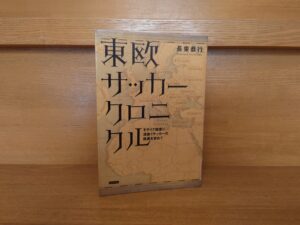
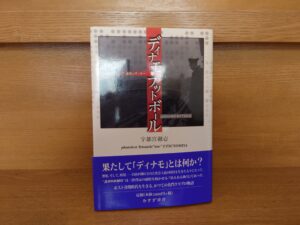
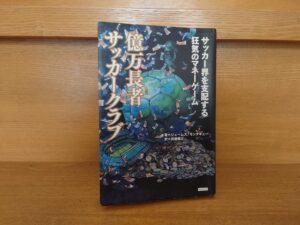
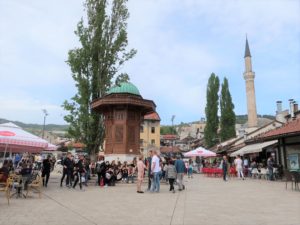

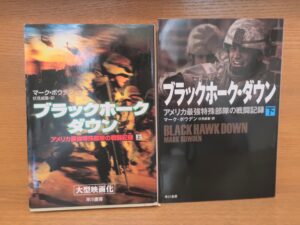

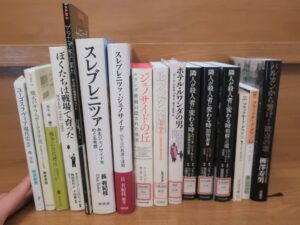
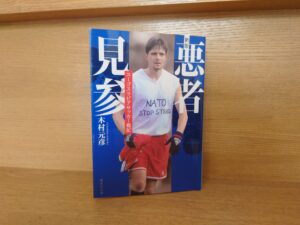

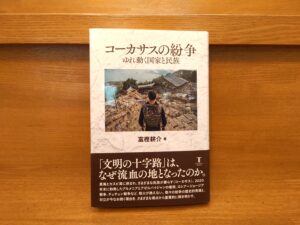




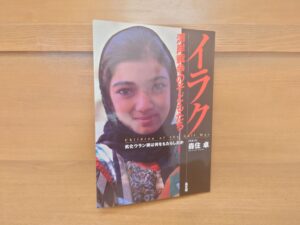

コメント